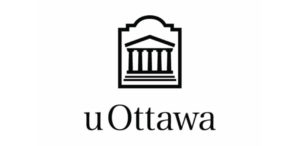
Fall 2017 – With support from the Strengthening Justice for International Crimes (SJIC) Partnership Grant, the Refugee Hub launched a new clinical course at the uOttawa faculty of law in Fall 2017.
The Refugee & Criminal Law Clinic provides a unique opportunity for 15 upper-year students per term to engage directly with public interest litigation on issues at the intersection of refugee law and criminal law. Students support counsel arguing strategically important cases, providing high-quality legal research, analysis and drafting. The Clinic is being led by the Refugee Hub’s Managing Director, Prof. Jennifer Bond (currently on sabbatical), the Hub’s Legal & Research Director, Nathan Benson, access to justice expert Prof. David Wiseman, and LLM Candidate Gregory Israelstam.
Cases are strategically chosen based on their potential to establish progressive legal principles to deal with situations involving individuals suspected of involvement in international crimes, who are therefore at risk of being excluded from refugee protection. These cases relate closely to the Partnership’s cluster on “Exclusion from Refugee Status and Deportation of Suspected War Criminals,” addressing the difficult interaction between the legitimate desire of states not to become havens for international criminals and their human rights obligations, particularly the obligation not to deport someone to potential harm.
Academic Research
In addition to the Clinic activities outlined above, the uOttawa Refugee Hub is engaged in research on three topics closely related to the SJIC Partnership Grant. These research activities involve a significant number of students, some of whom are being funded via the SJIC partnership grant. The projects are being led by the Refugee Hub’s Managing Director, Prof. Jennifer Bond, and Legal & Research Director, Nathan Benson.
The first project analyses the overlap between Canada’s exclusion and inadmissibility frameworks, both of which can result in a denial of refugee protection. Following the Supreme Court’s Ezokola decision, mere membership in a criminal organization (or “guilt by association”) can no longer justify exclusion; but it still results in criminal inadmissibility in a broad range of circumstances, making the individual concerned ineligible to make a refugee claim. The project seeks to analyze this apparent divergence of principles and outcomes, and propose possible solutions.
The second project analyses the development of jurisprudence on s. 7 of the Charter in relation to criminalized refugees. Since the Supreme Court’s landmark Singh decision in 1985, a series of decisions has gradually limited and narrowed the application of s. 7 of the Charter in the refugee context. This raises concerns that refugees may benefit from weaker or narrower protections under s. 7 of the Charter than others. The project, still at its early stages, involves careful study of the relevant case law to identify what key choices have been made along the way, and whether correctives are needed.
The third project examines the jurisprudence pertaining to the use of habeas corpus as a remedy for immigration detention, in particular since the Ontario Court of Appeal’s decision in Chaudhary (2015). As noted above, immigration detention is frequently used in situations where individuals are excluded from refugee status, but cannot be returned to their country of origin due to risks of torture, ill-treatment or unfair trial. Recent decisions granting habeas corpus to long-term immigration detainees present a potentially important check on detention that can become essentially indefinite or de-linked from its original purpose. Our project involves careful study of the fast-developing jurisprudence in this area, with a view to identifying key principles that should be applied, and points of contention that will need to be resolved.

